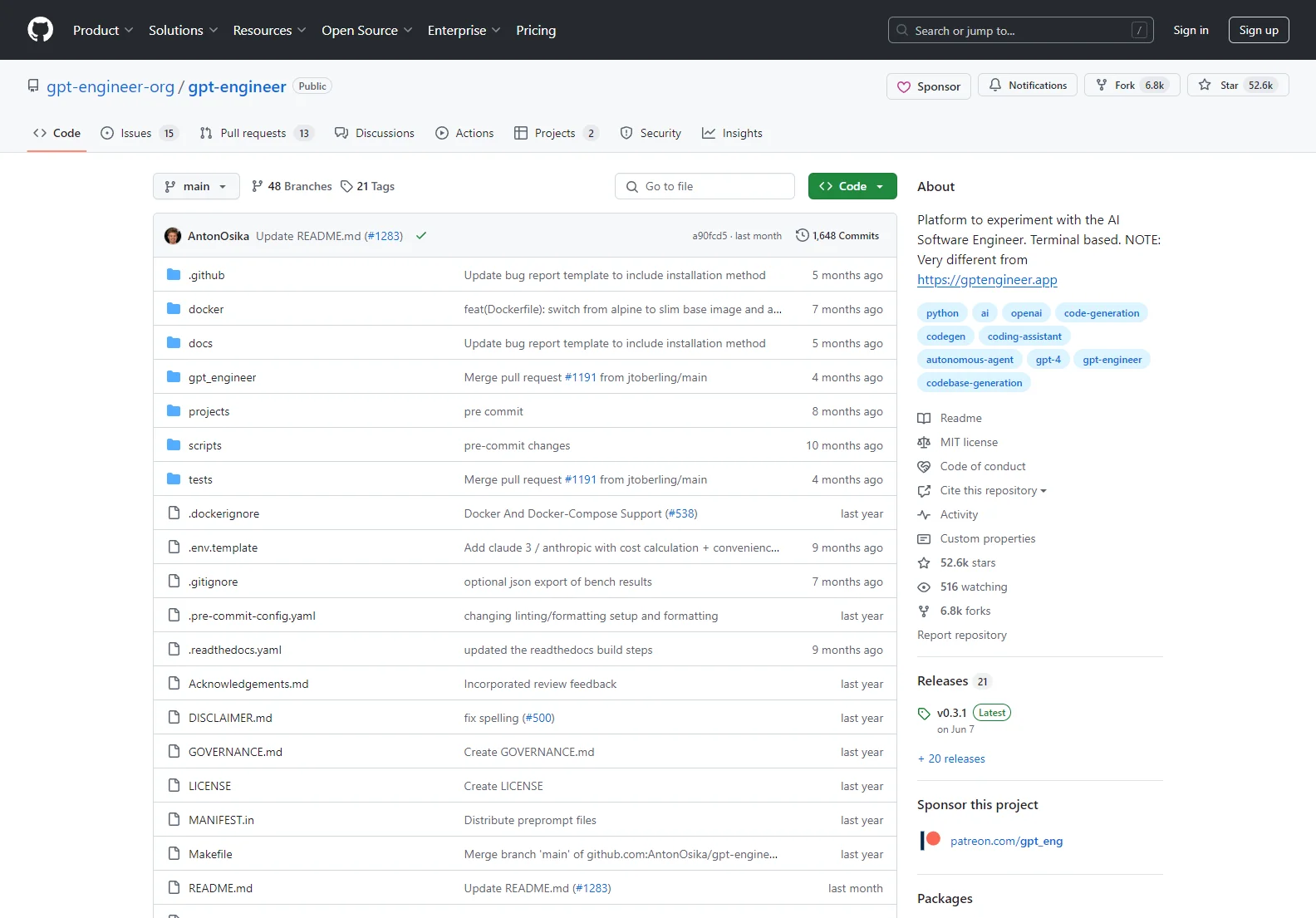gpt-engineer: Revolutionizing AI Software Engineering
Introduction
gpt-engineer is an innovative platform designed for experimenting with AI software engineering. It provides a terminal-based interface that allows users to specify software requirements in natural language, watch as AI writes and executes the code, and even request improvements. This tool is particularly useful for developers looking to streamline their workflow and explore the capabilities of AI in coding.
Key Features
- Natural Language Specification: Users can describe software requirements in plain language, making it accessible even to non-technical users.
- Automated Code Generation: The AI writes and executes code based on the provided specifications, saving developers significant time and effort.
- Improvement Requests: Users can ask the AI to implement improvements or modifications to existing code.
- Customizable Agents: The platform supports benchmarking custom agents against popular public datasets, enabling users to test and refine their AI implementations.
- Open Source and Local Models: In addition to OpenAI models, gpt-engineer supports open-source models like WizardCoder, offering flexibility and customization.
Getting Started
To get started with gpt-engineer, follow these steps:
- Installation: Install the tool using pip for the stable release or clone the repository for development.
- Setup API Key: Configure your OpenAI API key either by exporting it as an environment variable or by using a .env file.
- Create a Project: Start a new project by creating an empty folder and a prompt file with your instructions.
- Run the Tool: Execute gpt-engineer from the terminal, specifying the project directory.
Use Cases
- New Code Creation: Generate new code from scratch based on user-provided instructions.
- Code Improvement: Enhance existing code by specifying desired improvements in a prompt file.
- Benchmarking: Test and compare custom AI agents against established datasets to evaluate performance.
Conclusion
gpt-engineer is a powerful tool for anyone interested in exploring the potential of AI in software engineering. Its intuitive interface, support for natural language specifications, and ability to generate and improve code make it a valuable asset for developers. Whether you're looking to automate coding tasks or experiment with AI-driven software development, gpt-engineer offers a flexible and efficient solution.
For more information, visit the .

